


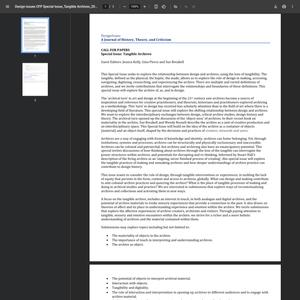
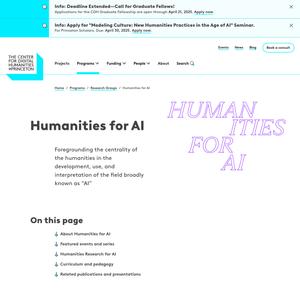
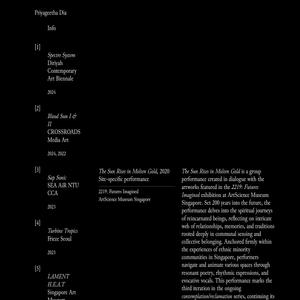


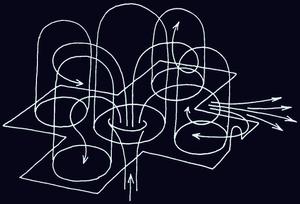
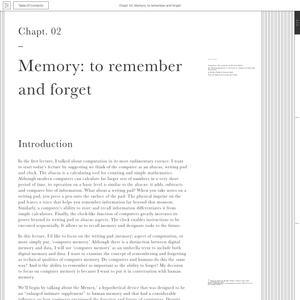
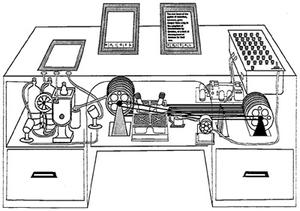
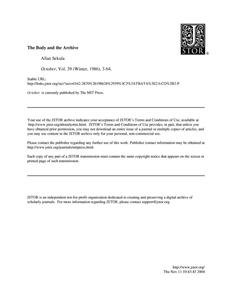
Epilogue
All memory is physical, information is material
All memory is finite, information is ephemeral
This lecture was a two-fold mash up of the critique of Memex (through Vanneavar Bush and Wendy Chun) and the concept of plasticity (through Catherine Malabou). I’d like to collect the disparate ideas back into aesthetic questions regarding computation. Computer is a giant memory machine. When we use the computer. we are, in essence, making memories of our perception, experience and thoughts. Then, what exactly distinguishes computers from other automata that repeat programmed tasks? The computer is constructed from what's called finite-state machines. A finite-state machine is an "abstract machine that can be in exactly one of a finite number of states at any given time. Computer memory is physical, even at the signal level inside of digital electronics. Contrary to Bush’s vision, computer is an unreliable memory machine. As much as the computer remembers, it tends to forget as...
To forget
Funes the Memorious — 1942
Luis Borges wrote Funes the Memorious, a story is about meeting a man who had a terrible accident and as a side effect he could remember everything. For a time this man was considered a genius because of his incredible long term memory. However, as time passed, he could not live his life because his mind was totally occupied by his memories. His memory was driving him insane. For him to recall one day, it took another whole day because he would remember every detail of every experience. In a sense, he was cursed with an inability to forget. When Borges returns to the man years later, he finds a man that has been defeated by the destructive nature of memory. Due to the totality of his memory, he could not live or sleep, and it ended up destroying him.
If we were to update Funes for 21st century, some version of Funes has become a reality where our external brain (internet/digitals ) remembers and archives everything. Much of the compilation...
Vannevar Bush published an essay in The Atlantic entitled “As We May Think” in 1945. In it, he details major technological developments due to the urgency of war. However, with the war over, he was concerned that these technological advancements would lead to a proliferation of information beyond what humans could reasonably manage, or manage well. In this upcoming crisis of ‘Information Overload,’ he felt it’d be impossible for us to find the information we need because there would be too much of it and no way to recall it. Bush suspected the problem not to be in the information itself but our ability to index the information. Based on an insight that human mind operates on a principle of association rather than indexing, Bush came up with an abstract machine called the Memex. It’s a conceptual device with inputs, outputs and an unlimited amount of storage where information can be stored and recalled.
“Selection by association, rather than indexing, may yet be mechanized. One...

All memory is physical, information is material.
All memory is finite, information is ephemeral.
Archiving conditions our relationship with memory.
Archiving against the oppression is Counter-Archive*.
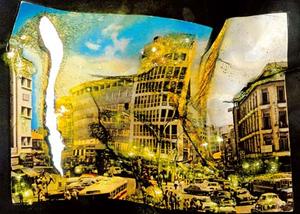




www.mondotheque.be/wiki/index.php/A_Pre-emptive_History_of_the_Google_Cultural_Institute